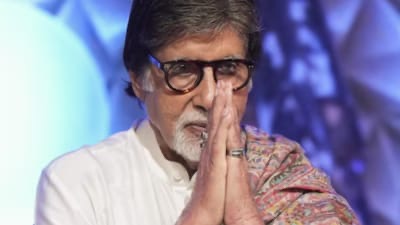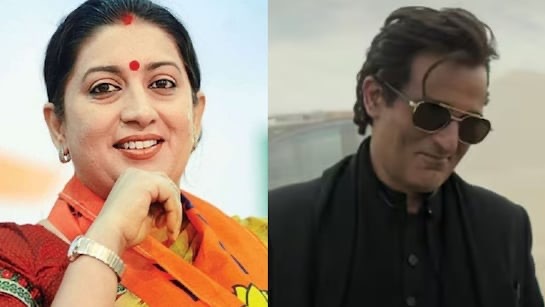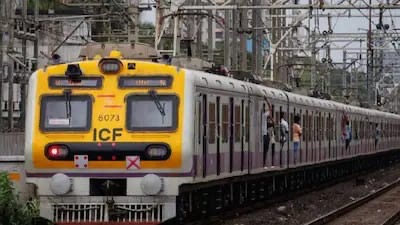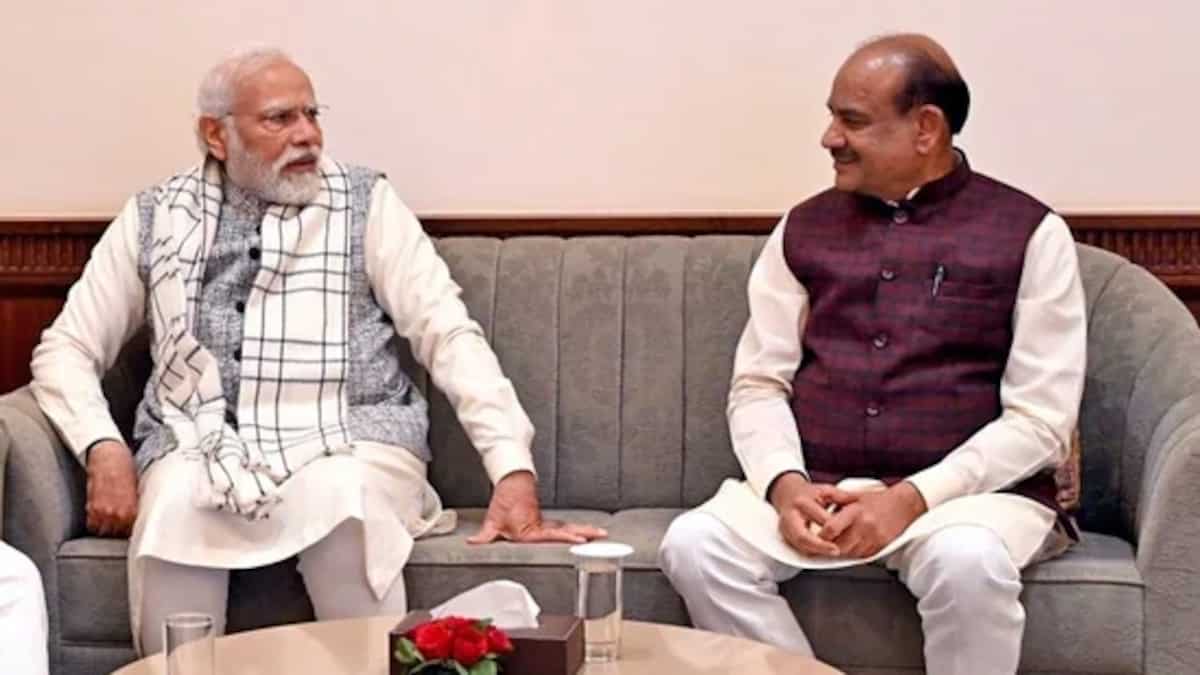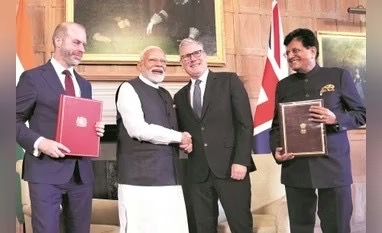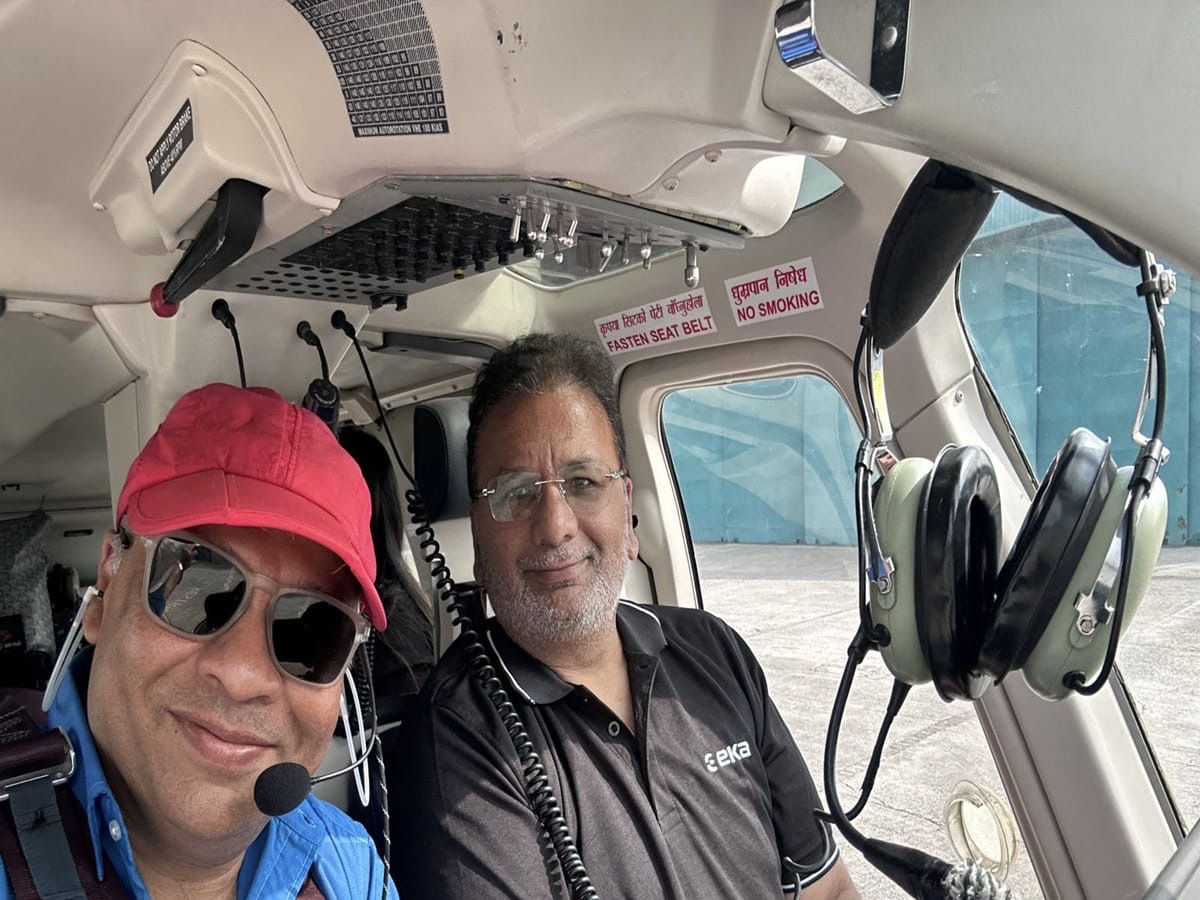India-UK deal clears visa path for Indians chasing UK jobs:
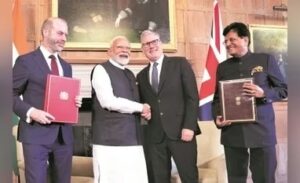 India-UK trade deal secures short-term visa access for Indian professionals, offering more clarity for those working in or planning to move to the UK
India-UK trade deal secures short-term visa access for Indian professionals, offering more clarity for those working in or planning to move to the UK
India and the United Kingdom signed a Free Trade Agreement (FTA) that includes provisions to make business mobility easier for professionals, investors, and service suppliers moving between the two countries. Although the deal does not introduce any new visa categories, it guarantees continued access to existing routes—bringing more predictability for Indian workers already in the UK or those planning to move.
As per UK Government this agreement locks in access for short-term business travel into India and the UK adding that UK businesses and professionals now have a guarantee that existing access to the Indian market will continue.
The agreement confirms visa routes for categories such as intra-corporate transferees, graduate trainees, investors, and independent professionals, though all movement remains temporary and subject to UK immigration rules. It also stresses on the UK’s right to modify thresholds such as salary, sponsorship, and visa conditions.
What does it mean for Indian professionals?
For Indian workers in the UK or those hoping to move, the biggest advantage is predictability. The FTA guarantees that skilled workers can continue to apply under existing routes, including the Global Business Mobility (GBM) scheme, which in 2024 granted over 25,000 visas worldwide.
A key provision guarantees that Indian workers under the intra-corporate transfer route those working for Indian companies with branches in the UK will be allowed to stay for at least three years, even if UK immigration policy changes. At present, they can stay up to five years, or nine if they meet the higher salary band.
Those on the graduate trainee path, or senior staff sent to set up a UK branch, are also covered under the deal, as are self-employed professionals with contracts in listed sectors.
Indian service suppliers in engineering, architecture, and accounting already had access under WTO rules, but the FTA expands that list. A quota of 1,800 per year has been introduced specifically for Indian chefs de cuisine, yoga teachers, and classical musicians to take up short-term roles in the UK.
PWhat remains unchanged?
The deal does not create any new visa categories or offer a route to permanent settlement. All visa applicants must meet current UK immigration requirements, including:
Salary thresholds (e.g. £48,500 for senior or specialist workers)
Proof of qualifications or experience
A contract with a UK-based company
Sponsorship from an approved UK employer
There is also no cap on how the Home Office may adjust these requirements in the future.
Indian workers will still need to pay the full immigration health surcharge—£1,035 per adult per year—and other employer-linked fees, including the Immigration Skills Charge (£1,000 for most employers for the first year) and a certificate of sponsorship (£525).
In the UK Parliament, Douglas Alexander, Minister of State at the Department for Business and Trade, said the agreement preserves Britain’s existing rules on immigration. “The deal does not affect the points-based system. It only covers business mobility, which is different from immigration, as it is about travel for specific and temporary business purposes,” he said.
The United Kingdom’s points-based immigration system is the framework used to decide who can work, study, or settle in the UK. In this, applicants must earn at least 70 points to qualify for most work visas.
Points are awarded based on specific criteria such as:
Having a job offer from an approved UK employer (20 points)
Speaking English at a required level (10 points)
Job being at an appropriate skill level (20 points)
Salary level (0–20 points depending on the salary band)
Occupation being in a shortage field (extra points)
Having a relevant PhD (extra points if related to the job, especially in STEM fields)
The agreement confirms access for the following categories:
Business visitors: Can travel to the UK for up to 6 months to attend meetings, conferences, or trade fairs.
Intra-corporate transferees: Senior employees or graduate trainees of Indian companies transferring to UK branches.
Contractual service suppliers: Indian employees contracted to deliver services in listed sectors.
Independent professionals: Self-employed individuals offering services on a UK contract.
Expansion workers: Indian business professionals setting up the first UK branch of their company.
All access is time-limited and temporary. Most routes are capped at one year, except for intra-corporate transferees.
While the FTA doesn’t offer new routes to live permanently in the UK, experts believe it brings long-term clarity. By locking in short-term visa access for specific professions, the deal ensures Indian businesses can continue to send specialists for key assignments without fear of sudden policy reversals.
Varun Singh, Managing Director of XIPHIAS Immigration, said the FTA represents more than a commercial agreement. “The India-UK FTA is more than just a trade pact — it’s a gateway for skilled Indian professionals to dream bigger. Both sides have signalled a strong intent to include provisions that ease mobility for Indian workers, particularly in sectors like IT, healthcare, and finance,” Singh told Business Standard.
“The landmark UK-India trade deal unlocks thousands of jobs and boosts growth across both economies. The Comprehensive and Strategic Partnership will see closer collaboration on defence, education, climate, technology and innovation,” said Alison Barrett, MBE, Country Director India, British Council.
The agreement mirrors mobility chapters in UK trade deals with New Zealand, Canada and the EU. For India, this is the first time such service access and labour mobility provisions have been formalised in a UK trade pact.
Indian nationals remain the largest group of non-EU skilled workers in the UK. According to the 2021 Census, 1.86 million people in England and Wales identified as having Indian ethnicity—making up 3.1% of the population.
Visa violations, including overstaying, continue to carry serious consequences such as deportation, re-entry bans and refusal of future visas. The agreement reaffirms that such rules will remain unchanged.
Connect with us on WhatsApp
More From This Section
H-1B visa lottery may end: What this means for Indian techies, students
Canada invites 4,000 foreigners in healthcare, social services for PR
Cheap holidays from cancelled trips: How to grab flights and stays for less
Fake country, fake embassy: How Ghaziabad man posed as ‘West Arctica’ envoy
H-1B lottery may end: US considers merit-based selection for work visas
News Edit KV Raman


